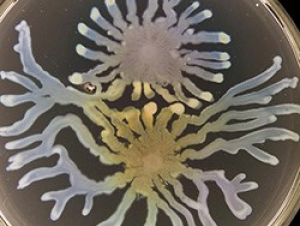To request a media interview, please reach out to experts using the faculty directories for each of our six schools, or contact Jess Hunt-Ralston, College of Sciences communications director. A list of faculty experts is also available to journalists upon request.
Latest News
The light released from around the first massive black holes in the universe is so intense that it is able to reach telescopes across the entire expanse of the universe. Incredibly, the light from the most distant black holes (or quasars) has been traveling to us for more than 13 billion light years. However, we do not know how these monster black holes formed.
Here's a science enigma: Try to explain where the neat, even DNA/RNA helix came from. That actually might be easy. The helix probably spun around itself with complete ease long before first life evolved, as this possible RNA precursor did in a Georgia Tech lab.
When it comes to the health effects of chronic stress, the type of stressor matters a lot.
Colin Spencer, third-year biology major who has served as director of the Mental Health Student Coalition, writes for the AJC about his own experiences with mental health, the efforts underway to improve the situation, and what more needs to be done.
Georgia Tech scientists with expertise in microbial chemical ecology, evolution, and quantitative modeling have formed the Center for Microbial Dynamics and Infection. The center will investigate the mechanisms and consequences of microbial community dynamics in the environment and during infection.
Greg Huey of the School of Earth and Atmospheric Sciences tells 11alive why it's coldest right after sunrise.








